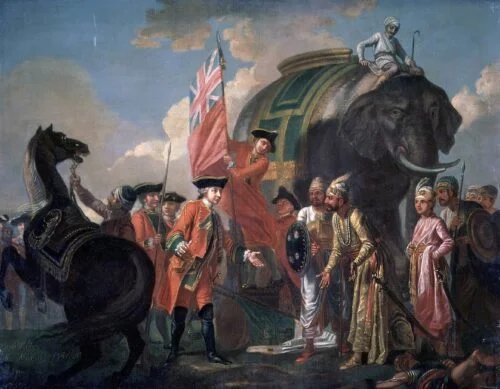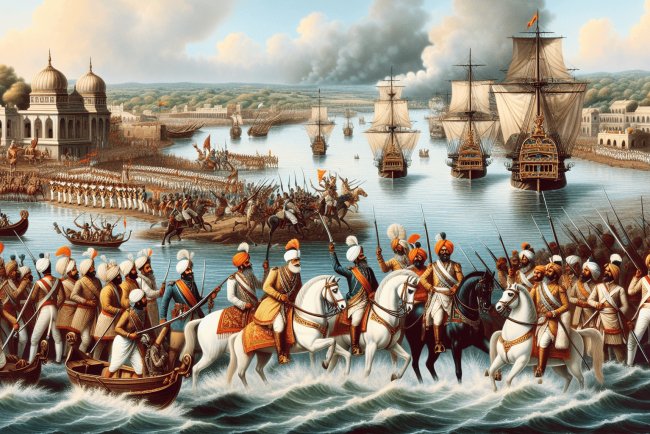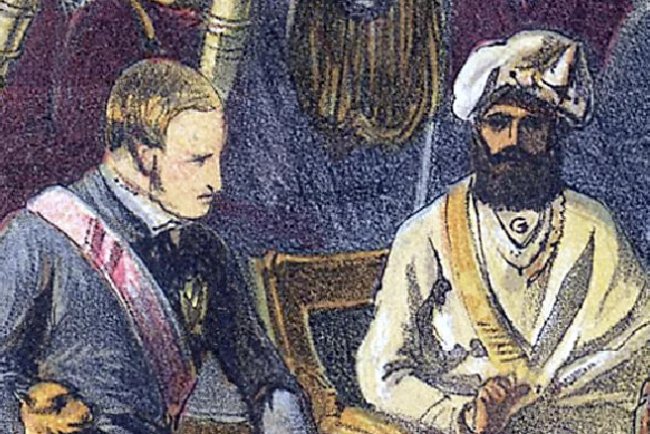The Carnatic Wars: A Turning Point in British Colonial Ambitions in India
Discover the pivotal role of the Carnatic Wars in establishing British colonial dominance in India. Explore the intense Anglo-French rivalry, strategic battles, and influential figures like Robert Clive and Dupleix that shaped the 18th-century Indian landscape.

The Carnatic Wars were a series of crucial military encounters in the 18th century that played a pivotal role in the establishment of British colonial dominance in India. These wars underscored the intense rivalry between European powers, particularly the British and the French, as they vied for supremacy over the lucrative Indian subcontinent.
Historical Context: India in the 18th Century
During the 18th century, India was a patchwork of kingdoms and principalities with no central authority, making it vulnerable to foreign influence and intervention. The Mughal Empire, which had previously united much of India, was in decline, creating a power vacuum that European powers were eager to fill. This period of political fragmentation and regional instability provided fertile ground for European colonial ambitions.
The French and British Strategic Moves
The French East India Company, established in 1664, sought to expand its influence in India through strategic alliances and military strength. Under the leadership of Joseph François Dupleix, the French fortified their positions and extended their influence over Indian rulers, aiming to create a French-controlled empire in the region.
The British East India Company, on the other hand, had been consolidating its power by establishing strongholds such as Fort St. George in Madras. The British strategy involved building a formidable naval presence to secure trade routes and forming alliances with influential local rulers to counter French expansion.
The Three Carnatic Wars: Detailed Analysis
First Carnatic War (1740-1748)
The First Carnatic War erupted as an extension of the Austrian War of Succession in Europe. The French, led by Dupleix, captured Madras from the British, capitalizing on the lack of a British naval defense. Although the Treaty of Aix-la-Chapelle eventually restored Madras to the British, the conflict highlighted the growing tension and the critical role of naval power.
Second Carnatic War (1751-1755)
This war stemmed from succession disputes in Hyderabad and the Carnatic region. Dupleix supported local contenders conducive to French interests, using diplomatic and military strategies to expand French influence. However, British military leader Robert Clive orchestrated a successful campaign, capturing Arcot and turning the tide in favor of the British. The ensuing Treaty of Pondicherry called for non-interference in Indian political matters and a mutual return of territories.
Third Carnatic War (1758-1763)
The Third Carnatic War was part of the broader Seven Years' War. The French commander Count de Lally arrived in India with reinforcements, achieving initial successes such as the capture of Fort St. David. However, strategic errors and robust British counterattacks, including the decisive Battle of Wandiwash, led to a French defeat. The Treaty of Paris in 1763 concluded the conflict, severely limiting French military presence in India.
Key Figures and Their Impact
Joseph François Dupleix
Dupleix was a visionary French leader whose ambitious strategies aimed at establishing French dominance in India. His efforts in forming alliances and fortifying French territories significantly challenged British expansion. Despite initial successes, his recall to France marked a turning point that curtailed French ambitions in India.
Robert Clive
Robert Clive emerged as a formidable British leader whose tactical brilliance was instrumental in securing British victories in the Carnatic Wars. His capture of Arcot and subsequent military campaigns solidified British influence in South India, paving the way for future colonial expansion.
Broader Implications for India and Europe
The Carnatic Wars had profound implications for both Indian society and European colonial ambitions. For India, these wars marked the beginning of significant foreign intervention in local politics, altering the power dynamics and leading to increased British control. European powers realized the importance of India as a strategic asset, intensifying their colonial pursuits.
Conclusion
The Carnatic Wars were a watershed moment in the history of colonial India, marking the decline of French aspirations and solidifying British supremacy. These conflicts not only demonstrated the critical importance of military and naval power but also set the stage for the British Empire’s expansion across India. The legacy of the Carnatic Wars continues to influence the historical narrative of colonialism, underscoring the complex interplay of power, politics, and ambition that shaped modern India.
What's Your Reaction?















